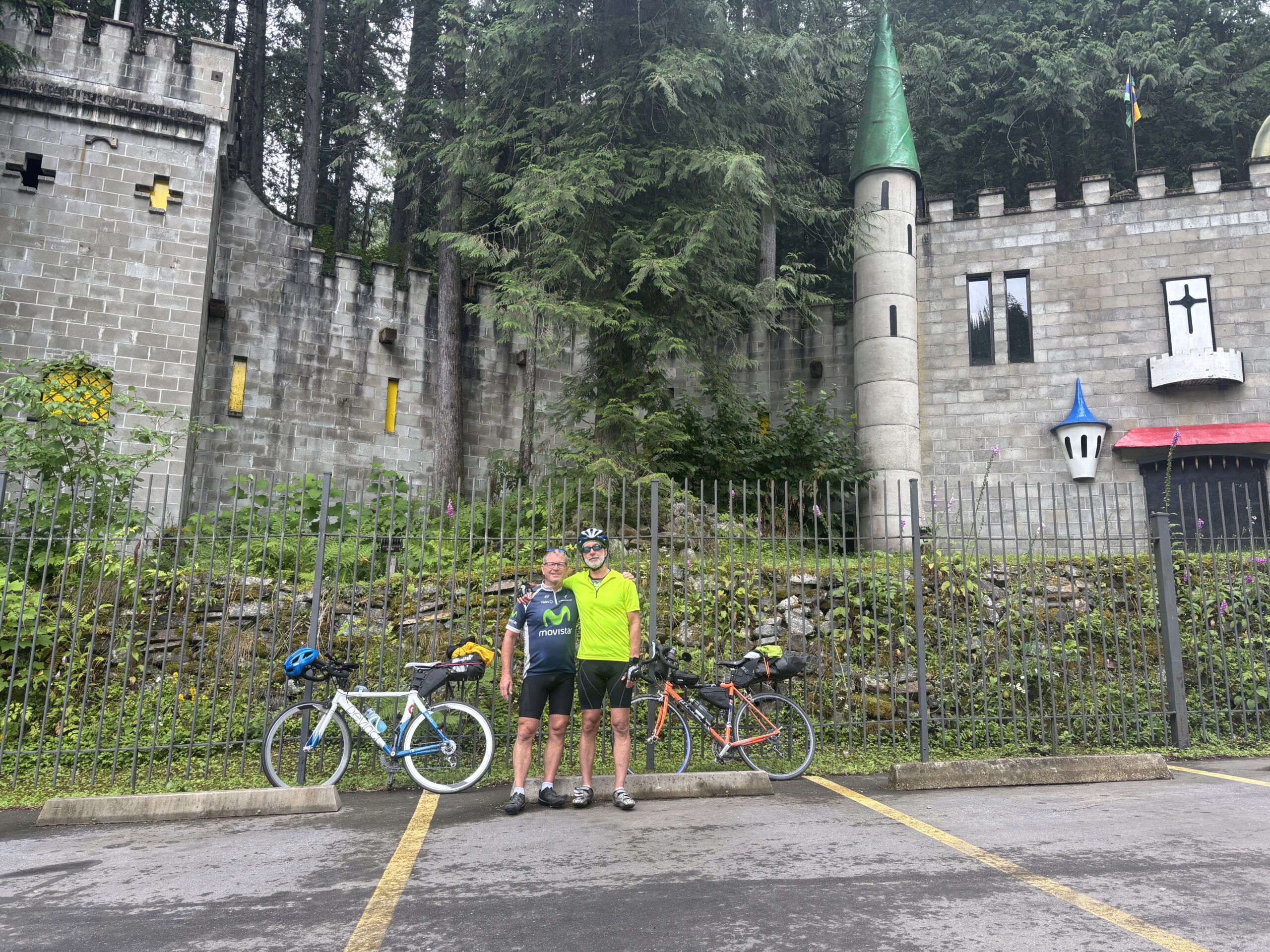When Graeme and I clipped into our pedals in Calgary this past July, we weren’t just setting out on another bike ride. We were signing up for a challenge — 1,100 kilometers of mountains, valleys, and unpredictable weather, riding from Calgary to Vancouver. At 61 years old, some might say we should be slowing down. Instead, we chose to lean into discomfort, to test our grit, and to prove that age just doesn’t matter
The road west out of Calgary lulls you into a false sense of ease. It’s wide and flat, with the Rockies looming in the distance like a wall waiting to test your spirit. And test us they did. The climb up Roger’s Pass was one of those moments when your body screams to stop, your legs feel like concrete, and every pedal stroke is a small victory. We were sweating, gasping, and questioning our sanity — but also smiling, because deep down we knew this was exactly why we came.
By the time we hit the Pennask Summit climb, extreme fatigue had set in. We were sore, tired, and stiff. Yet something happens when you keep going through that fatigue. Instead of breaking you down, it builds you up. The mind adapts. You stop fighting the pain and start accepting it as part of the journey.
The Science Behind Struggle
It turns out there’s real science behind why doing hard things is so good for us. Psychologists call it “eustress” — the positive form of stress that challenges us just enough to grow without overwhelming us. Research shows that leaning into challenges releases dopamine and endorphins, the brain’s natural feel-good chemicals, which not only improve mood but also build resilience against future stress.
On a biological level, difficult physical tasks like climbing mountain passes trigger adaptations in the cardiovascular and muscular systems. But more importantly, they strengthen what scientists call stress inoculation — training the brain and body to remain calm and resourceful under pressure. Just like a vaccine introduces a safe dose to build immunity, tough experiences prepare us to handle life’s unexpected storms with greater confidence.
In other words, every climb and every moment of fatigue wasn’t just about getting to Vancouver. It was about learning to handle the rest of life with more strength and perspective.
Why Age Isn’t a Barrier
Riding over 100 kilometers a day for ten days isn’t easy at any age. At 61, there were times when our bodies reminded us that recovery takes longer than it used to. But there’s also a profound gift in pushing limits later in life: it proves to ourselves — and maybe to others — that growth never has an expiry date.
Too often, people step back as they age, avoiding discomfort in favor of ease. But ease doesn’t build resilience. Challenge does. And when you prove you can still tackle mountains, you carry that confidence into every other area of life.
RTJ Wellness Takeaway
The ride from Calgary to Vancouver was more than a bike trip. It was a reminder that stress isn’t always something to avoid. When we choose the right kind of challenge like, something difficult but meaningful, we build resilience, confidence, and joy.
As author George Sheehan once wrote:
“The secret of life is not to do what you like, but to like what you do.”
At RTJ Wellness, we believe leaning into tough, meaningful challenges is one of the best ways to manage stress and live fully. With this belief in place:
What mountain in your own life could you climb — not because it’s easy, but because the challenge will make you stronger?
